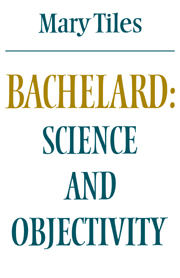Book contents
- Frontmatter
- Contents
- Editor's Introduction
- Preface (and Postscript)
- Acknowledgments
- Abbreviations
- 1 Philosophy of science: the project
- 2 Non-Cartesian epistemology and scientific objectivity
- 3 Non-Euclidean mathematics and the rationality of science
- 4 Non-Baconian science and conceptual change
- 5 The epistemology of revolutions – between realism and instrumentalism
- References
- Appendix: Biographical note
- Index
5 - The epistemology of revolutions – between realism and instrumentalism
Published online by Cambridge University Press: 14 November 2009
- Frontmatter
- Contents
- Editor's Introduction
- Preface (and Postscript)
- Acknowledgments
- Abbreviations
- 1 Philosophy of science: the project
- 2 Non-Cartesian epistemology and scientific objectivity
- 3 Non-Euclidean mathematics and the rationality of science
- 4 Non-Baconian science and conceptual change
- 5 The epistemology of revolutions – between realism and instrumentalism
- References
- Appendix: Biographical note
- Index
Summary
According to Bachelard, contemporary scientific thought is non-Cartesian, non-Euclidean and non-Baconian. Its epistemology is non-Cartesian in the sense explored in Chapter 2. Its mathematical framework is non-Euclidean, and the importance of this characteristic in shaping Bachelard's picture of contemporary science becomes apparent in the context of the claim, explored in Chapter 3, that mathematics forms the rational framework for scientific thought. Finally, its experimental methods are non-Baconian in that, as was seen in Chapter 4, they do not conform to the inductivist's account of the way in which experience is related to theory. Here the epistemological view is fundamental, as the discussions of Chapters 2 and 3 show. Non-Cartesian epistemology is presupposed in the suggested account of mathematics and its role in science, and in the shift of attention from induction (including under this head both verificationist and falsificationist approaches) to development by the successive rectification of concepts.
It is to epistemology, in the light of the positions outlined in Chapters 3 and 4, that we must now return. For what Bachelard offers is an account of the epistemology of science via an account of the dynamics of scientific thought. The epistemology offered is that of sciences which realise, in unforeseen ways, the seventeenth-century ideal of a science which is at once mathematical and experimental. It is also the epistemology of science in the twentieth century, a century which has seen major theoretical and technological revolutions.
- Type
- Chapter
- Information
- Bachelard: Science and Objectivity , pp. 180 - 230Publisher: Cambridge University PressPrint publication year: 1984



